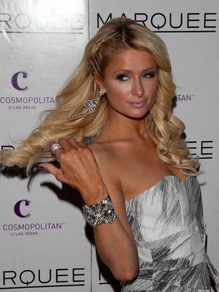|
ALICE KENNEDY Volume 9, Issue 7 Law school did not prepare me for one thing. It wasn’t the mounds of reading. It wasn’t even my now ingrained caffeine addiction. It was the discovery of the marvelous world of judicial sass. My first real life encounter with judicial sass was while watching court. At a particular moment in the hearing, the judge’s demeanour rapidly shifted from baseline judicial resting face to a look of laser-like intensity. The look alone stopped the barrister halfway through his sentence. He closed his mouth (wisely) and the judge told him in no uncertain terms the matter had been dealt with and would not be revisited. The barrister withdrew meekly into his suit, and proceedings continued. Classic sass. So what is judicial sass, exactly? It would be unfair to limit this phenomenon to the barbed exertion of a judge’s authority in court. Judicial sass is a combination of wit, presence and opportunity made possible by the setting of the courtroom. The judge directs proceedings and with that power comes the ability to conduct those proceedings with well-placed humour, if the judge so chooses. Or possibly, a judge may simply want to show they keep up with pop culture as this extract from Roach, shows (link here):
Suffice to say there is some untapped comedic talent amongst the judiciary. To that end, I recommend the blog ‘Shit Judges Say,’ a tumblr that can keep you up to date on the latest developments in epic judicial burns, supplemented with a number of historical gems. The beauty of judicial sass is that it is also right there in the judgments. That keeps things interesting when you’re wading through a reading and suddenly a judge casts some shade. I thoroughly recommend you check out the judgment in ERA Group Pty Ltd v Armstrong where some unethical lawyers get a dressing down from the High Court, or go and witness the Kirby vs McHugh showdown on constitutional interpretation in Al-Kateb. Judicial sass is also an infusion of formality with humanity. Often, I think that judicial sass is a sign of a judge having fun with their job – you get a sense of the person sitting under the wig, so to speak. However, judicial sass also shows us that judges are not always the patient, august creatures we imagine them to be as we read their judgments. At times, sass comes across as impatience or frustration. However, given that this frustration may be directed against wasting the court’s time or towards unethical conduct by parties or their counsel - I think judges can be reasonably be excused for what superficially passes for getting salty. But perhaps most importantly, I think we ought to take something from judicial sass other than its inherent comedic value, and keep in mind its practical function. I am told a great deal of judicial sass is directed at other judges: comments are frequently directed “along the line.” Therefore, a full and proper understanding of judicial sass must incorporate its other intended audience - judges themselves. The humour we perceive is not so much generated at the expense of the parties, rather it is a tool for highlighting a flaw in approaching a legal problem. For example, a judge might reconsider their line of inquiry upon hearing a comment from another judge. Judges may also give each other a pointed, but good humoured nudge towards a more logical path of reasoning. Consequently, judicial sass is helpful to proceedings in that it encourages critical reflection amongst judges. In short, judges keep each other on their toes. So we might sit in front of our computer screens and chuckle at some of the “Shit Judges Say.” We might even imagine an epic judicial smack down with a booming WWE voiceover. But that really wouldn’t be right, even though it is an entertaining way to think of judges. Judicial sass can lighten the mood, and I think it is often intended to do so. Judicial sass may also give us a sense of the judge as a person beyond their title. However, it is always important to remember that a judge’s comments are not so much there to amuse us as to serve the law. Judicial sass is not a mere comedic addition to judicial proceedings; rather, it plays its own valuable, idiosyncratic role in the legal process. Alice Kennedy is a second-year JD student Help De Minimis by becoming a member. It'll only take 20 seconds!
The rest of this week’s issue of De Minimis:
More De Minimis - other articles like this: Comments are closed.
|
Archives
October 2022
|



